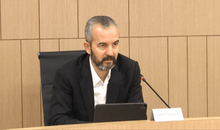
 Flash News
Flash News
Accident in Lezha, 69-year-old loses control and hits 4 parked vehicles
Accident in Lezha, car ends up in the parking lot of a playground
Report/ Albanian healthcare between limited transparency and under-financing
Accident on the Fier-Vlora axis, car goes off the road, 3 injured
State Matura, mathematics exam results published
Albania comes out of the gray list, did the Albanian government agree to withdraw from the Fiscal Amnesty?

Albania has left the money laundering gray list, which it entered in February 2020. Minister Ervin Mete gave the news at the conference with the IMF and BSH.
" The decision was taken today by the Plenary Assembly of the FATF and comes as a result of the progress made by our country in implementing the recommendations. This is a decision with a number of positive impacts, both in terms of reputation and in easing the costs of financial transactions in the banking system inside and outside the country," he declared, among other things, today in front of the media.
But how did this decision come about and did it condition Albania to withdraw from the initiative of the Albanian government for Fiscal Amnesty?
Minister Mete did not give a direct answer as to whether the government has withdrawn from this initiative or not, but emphasized that they will not take any measure that contradicts the principles of the FTFA (Financial Action Task Force).
" The answer is that we will not undertake any measure that contradicts the principles in this field, FATF recommendations or similar practices taken in other countries. Every measure is compatible with other practices", said Mete.
It seems that the reason for this decision-making is not the fulfillment of the recommendations.
We recall that in May of this year, the Council of the European Union warned the Albanian government not to flirt with fiscal amnesty, as this would have serious consequences for the country. In the report of the joint conclusions of the economic and financial dialogue with the countries of the Western Balkans, the Council of Ministers of the EU emphasized that the amnesty project is contrary to the EU framework for the fight against money laundering
" Albania must avoid any other scheme or measure, such as the law on fiscal and criminal amnesty, which would compromise or undermine alignment with European Union policies, including EU procedures and measures aimed at preventing money laundering and fiscal evasion. " says the report.
Instead of relaxing fiscal laws, EU ministers called on the Albanian government to move in the opposite direction, that of strengthening the fight against money laundering.
"The amnesty law would also undermine the fulfillment of the criteria necessary to delist Albania from the money laundering gray list," the report states.
In the document, the Council suggests the government to increase revenues in the state budget through fiscal measures that are friendly to economic growth. According to the report, the increase in income in relation to the Gross Domestic Product is critical to finance the necessary increase in productive investments in human and physical capital.
The Albanian government temporarily withdrew from the adoption of the law on fiscal amnesty after international pressure. But Prime Minister Edi Rama has publicly stated several times that the amnesty will be approved, as it is necessary to support the economy and relieve Albanian citizens, especially immigrants from an unfair legal burden.
What is Fiscal Amnesty?
Fiscal and criminal amnesty is a legal initiative undertaken by the Albanian government to forgive all fines, arrears of property that is declared, if the registration of the property available in the last 30 years is carried out, carried out until the date of entry into force of the law . Persons who apply for fiscal amnesty are kept anonymous and do not initiate criminal prosecution procedures.
Latest news


Accident in Lezha, 69-year-old loses control and hits 4 parked vehicles
2025-06-26 20:51:34


KPA upholds dismissal of judge Avni Sejdi
2025-06-26 20:15:54



Accident in Lezha, car ends up in the parking lot of a playground
2025-06-26 19:35:03
Special court for the war in Ukraine, Zelensky signs the agreement in Strasbourg
2025-06-26 19:17:43

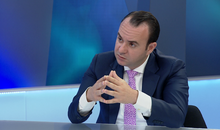

Report/ Albanian healthcare between limited transparency and under-financing
2025-06-26 18:34:34

Rama returns to Parliament after 6 months of absence
2025-06-26 18:14:37

Greece on fire, several houses burn in Athens, residents evacuated
2025-06-26 17:46:29

The College rejects the DP's request for the Vlora region
2025-06-26 17:29:18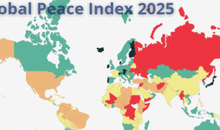



Accident on the Fier-Vlora axis, car goes off the road, 3 injured
2025-06-26 16:17:52
State Matura, mathematics exam results published
2025-06-26 16:05:33
Don't get burned by carelessness: Six mistakes that make sunscreen useless
2025-06-26 15:58:18
Caught with cocaine, 26-year-old arrested in Saranda (NAME)
2025-06-26 15:50:42
What does 5% of GDP on defense mean?
2025-06-26 15:42:39

Extreme heat wave, temperatures above 40°C next week
2025-06-26 15:26:12
State Matura/ Mathematics test results published, only 166 excellent students
2025-06-26 15:07:10
Race for BKH leader, 6 candidates disqualified, reason
2025-06-26 15:07:10
Have Sarah and Dj Pm broken up? Einxhel reveals the truth
2025-06-26 14:56:12

Neighbor's daughter stoned and police officers shot, two brothers arrested
2025-06-26 14:37:03
GJKKO leaves Ilir Meta in prison
2025-06-26 14:20:19
Anesthesiologist at QSUT, Nertila Kodra Gora, passes away
2025-06-26 14:20:04
Ilir Meta's defense arguments in the GJKKO are revealed
2025-06-26 14:00:15
5 super healthy foods you should add to your diet
2025-06-26 13:47:51

Anatomy of a crime
2025-06-26 13:24:08
Don't cover your baby's stroller on hot days like these, here's why
2025-06-26 13:06:01
Iran's Supreme Leader reacts for the first time after the conflict with Israel
2025-06-26 12:58:27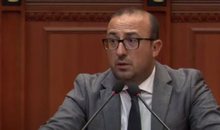


Special Appeal makes decision for former judge Guxim Zenelaj
2025-06-26 12:17:01
Will Smith poses next to the Albanian footballer, making the double-headed eagle
2025-06-26 12:07:10

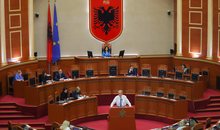



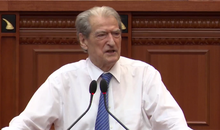


Vacation? Not for us
2025-06-26 10:20:50
When the camps become an "honor" for Italy and a "shame" for Britain
2025-06-26 10:10:21
SPAK leader demands dismissal of Ermonela Felaj's sister
2025-06-26 09:59:39

Why is it so difficult for us to get a good night's sleep?
2025-06-26 09:40:20
Iran: Complete destruction or just minor damage?
2025-06-26 09:27:53
Donald Trump demands immediate cancellation of Netanyahu's trial
2025-06-26 09:19:46
Thousands of cannabis roots found and destroyed in Shkodra, 4 prosecuted
2025-06-26 09:10:50

Costly experiment: Italy weighs costs of migrant centers in Albania
2025-06-26 08:54:01
Election effect, employment in the state reaches record in the first quarter
2025-06-26 08:40:21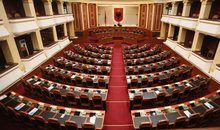
Parliament in plenary session, draft laws expected to be approved
2025-06-26 08:29:34
Horoscope, what do the stars have in store for you today?
2025-06-26 08:12:59
Parashikimi i motit, temperaturat arrijnë deri në 37 gradë
2025-06-26 07:58:10
Posta e mëngjesit/ Me 2 rreshta: Çfarë pati rëndësi dje në Shqipëri
2025-06-26 07:45:04
CIA chief: Iran's nuclear facilities 'severely damaged' by recent attacks.
2025-06-25 22:53:09
NATO spending to increase by 5%, diplomat: Aims to pull economies out of crisis
2025-06-25 22:32:28

Djegia nga dielli, ja disa mënyra si ta trajotni në kushte shtëpie
2025-06-25 21:56:19

Rama: NATO Summit in 2027 will be held in Tirana
2025-06-25 21:36:35
What is known about the weapons that Serbia has banned from exporting to Israel?
2025-06-25 21:23:19


The new war front? Not in the Middle East, but in SPAK!
2025-06-25 20:40:02

Gjendet e vdekur 56-vjeçarja shqiptare në Greqi! Nënë e 3 fëmijëve
2025-06-25 20:21:03
PHOTO/ Car falls off bridge on Peqin-Elbasan axis
2025-06-25 20:11:16

Trump at NATO summit: In recent weeks we have dealt with Kosovo and Serbia
2025-06-25 19:47:10





Trump: US to meet with Iran next week, but nuclear deal not necessary
2025-06-25 18:15:22




NATO's defense plan, what will change for Albania?
2025-06-25 16:42:07
Bayern loans Albanian talent to German team
2025-06-25 16:32:00

Kremlin: US and Iran disagree on damage caused by attacks
2025-06-25 16:13:55